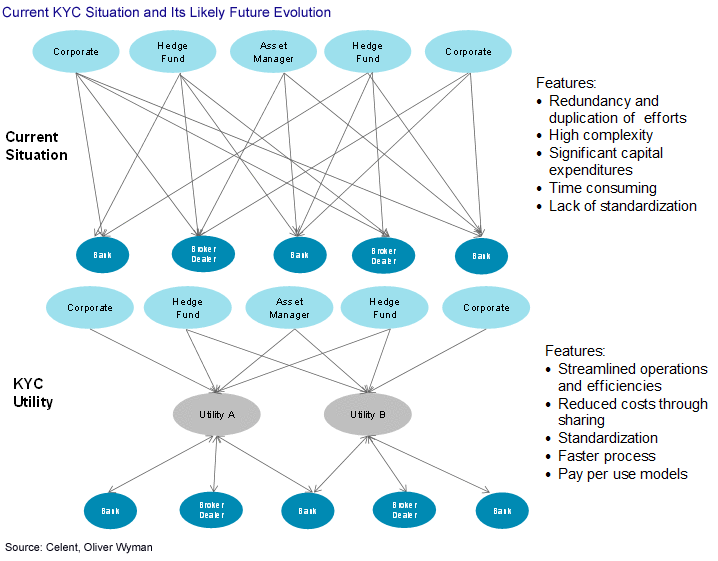Emergence of a Utility Model: The Case of KYC On-Boarding Solutions
Abstract
The advent of utility models in KYC and on-boarding operations represents a further shift in financial institutions standardizing and outsourcing non-core, non-differentiating aspects in their business. Anecdotal evidence points to potential reductions of 30% to 50% in KYC operational expenses.
In the report Emergence of a Utility Model: The Case of KYC On-Boarding Solutions, Celent discusses the emergence of utility-shared service models in the financial services industry, particularly in the area of know-your-customer (KYC) and client on-boarding. In the aftermath of the financial crisis, the regulatory environment has undergone rapid changes and is still evolving, creating additional obligations for financial institutions.
One area that has seen a number of solutions emerge under a utility/shared service model is in know-your-customer (KYC) and client on-boarding operations. The KYC space has received a lot of attention in recent times, particularly from an anti-money laundering (AML) perspective. Furthermore, new regulations, particularly FATCA, require financial institutions to significantly enhance their KYC and on-boarding processes and practices to meet compliance needs. In light of these, collecting, managing and monitoring information on clients’ background and transactions have become very important.
Current practices are complex and redundant, requiring every customer to exchange information with every financial institution they deal with. The utility model, on the other hand, envisages gathering all customer information at a single space that can in turn be shared with financial institutions.
In addition to analyzing factors shaping the emergence of utility models in the KYC-on boarding area, this report also analyzes four solutions in the KYC on boarding space that have been offered or will soon be launched under the shared service-utility model, including:
- SWIFT KYC Registry.
- Thomson Reuters Accelus Org ID.
- Clarient Entity Hub (by DTCC and six cofounding banks)
- Markit | Genpact KYC Services.

“In an ideal world one would envision existence of a single utility provider, to avoid redundancy for information providers and users alike,” says Arin Ray, Analyst with Celent’s Securities & Investments Group and coauthor of the report. “However, the space has already seen emergence of more than one provider, which makes it suboptimal at present. How the situation will evolve going forward still needs to be seen.”
“The emergence of KYC utilities represents one interesting opportunity for solution providers working with financial firms to mutualize their cost bases,” says Cubillas Ding, Research Director in Celent’s Securities & Investments Group and coauthor of the report. “Momentum in these efforts will expedite adjacent cost reduction opportunities, as firms continue to push the envelope to explore emerging operating models beyond conventional captive operations.”

